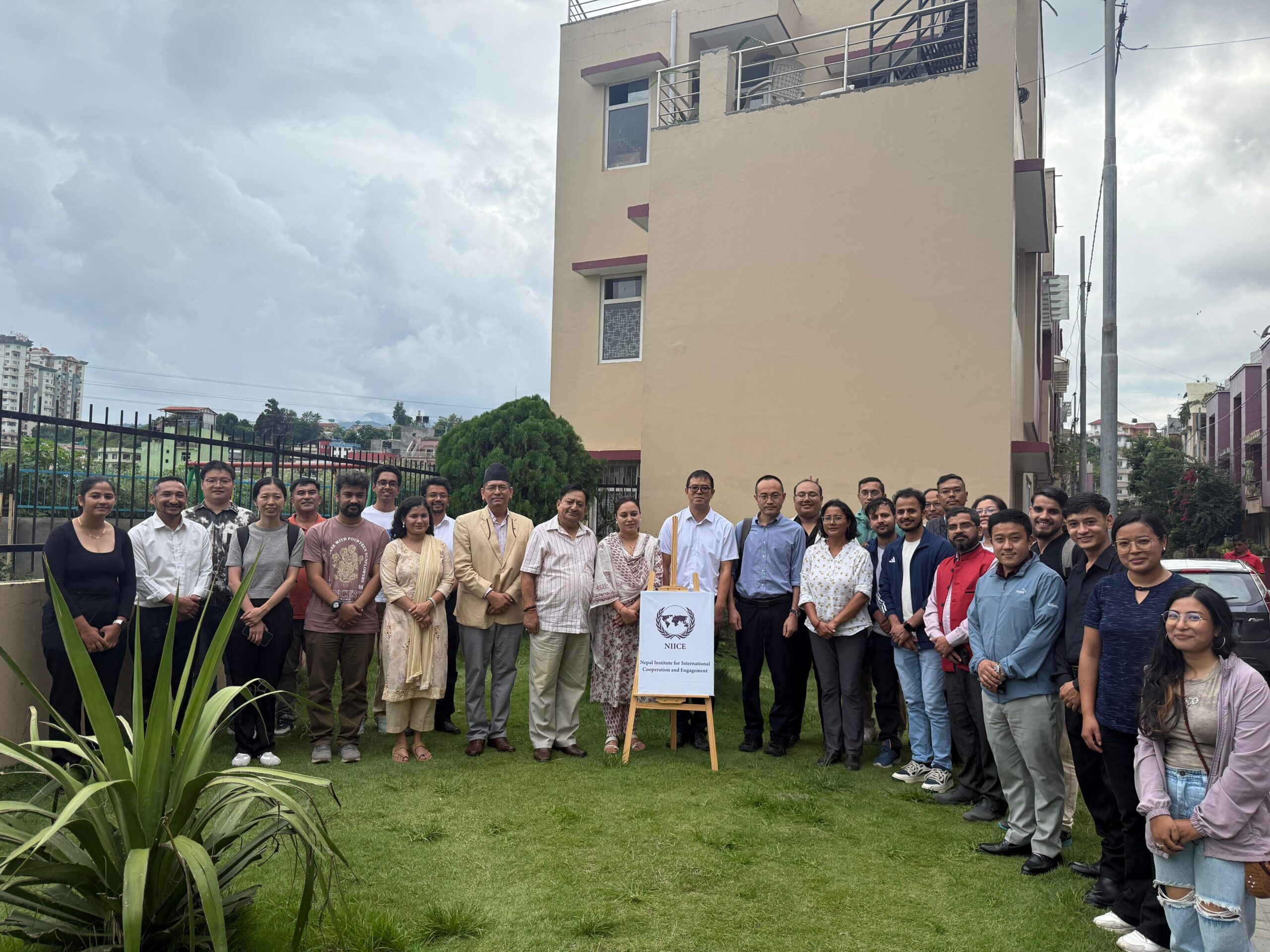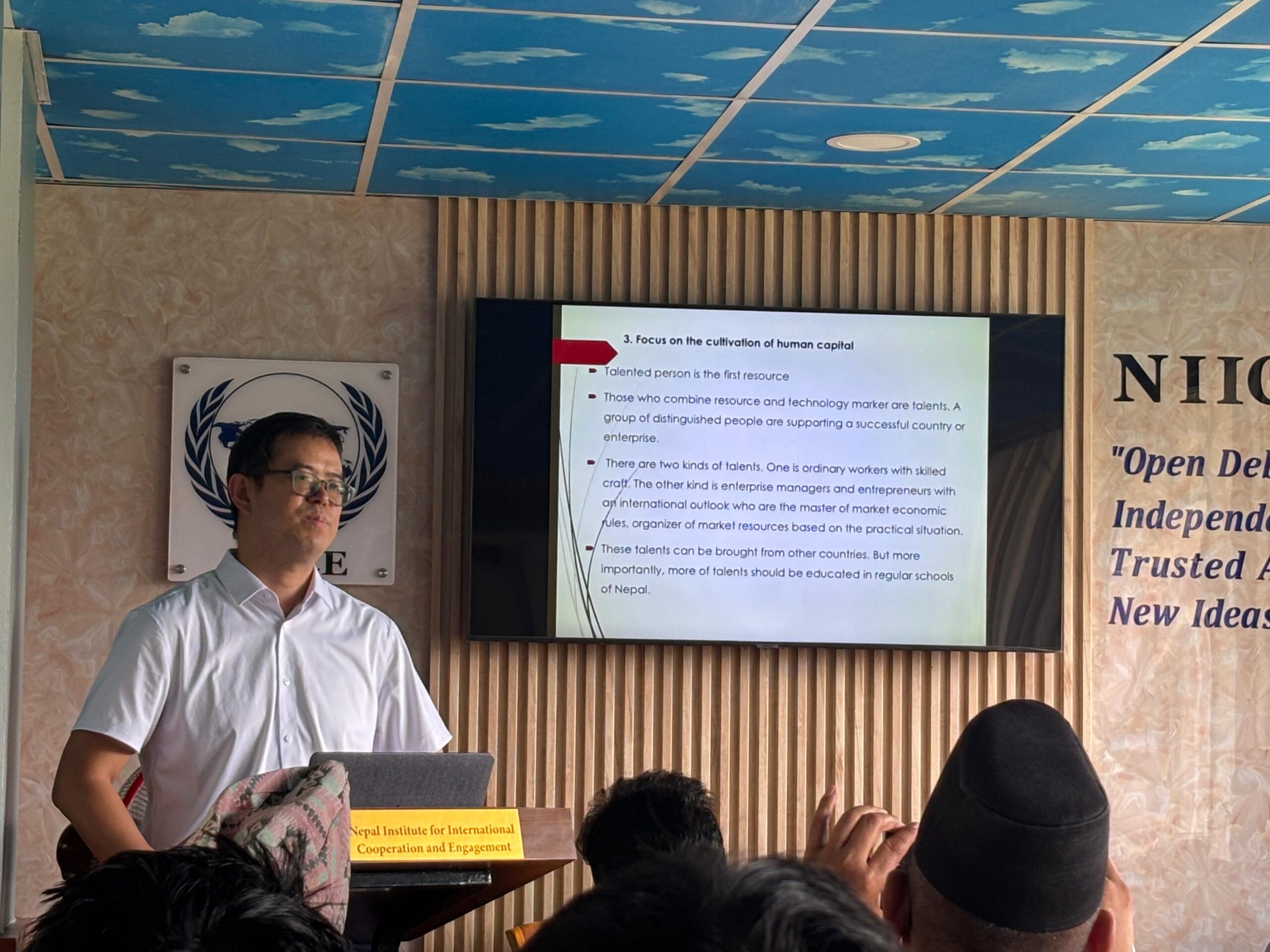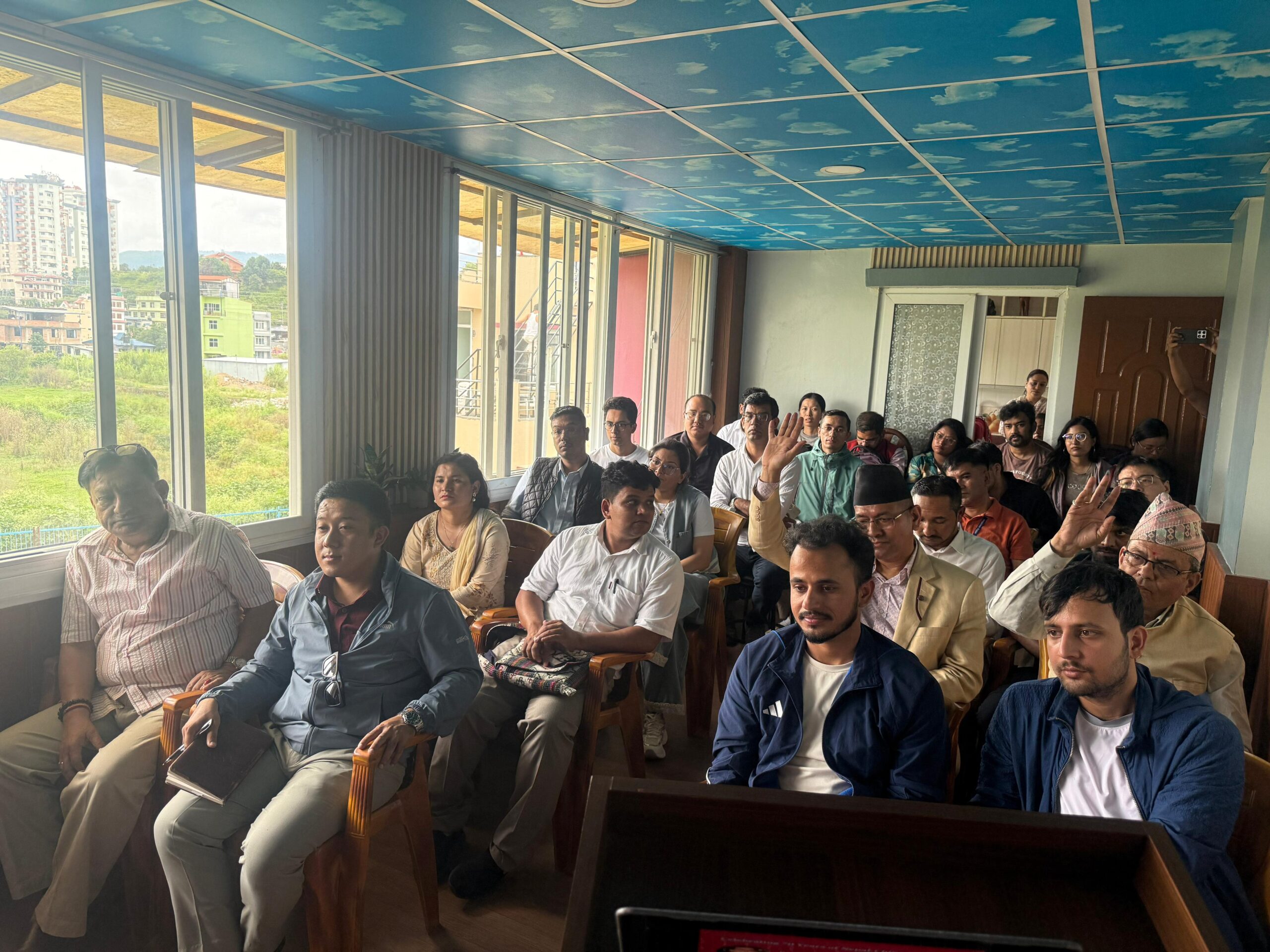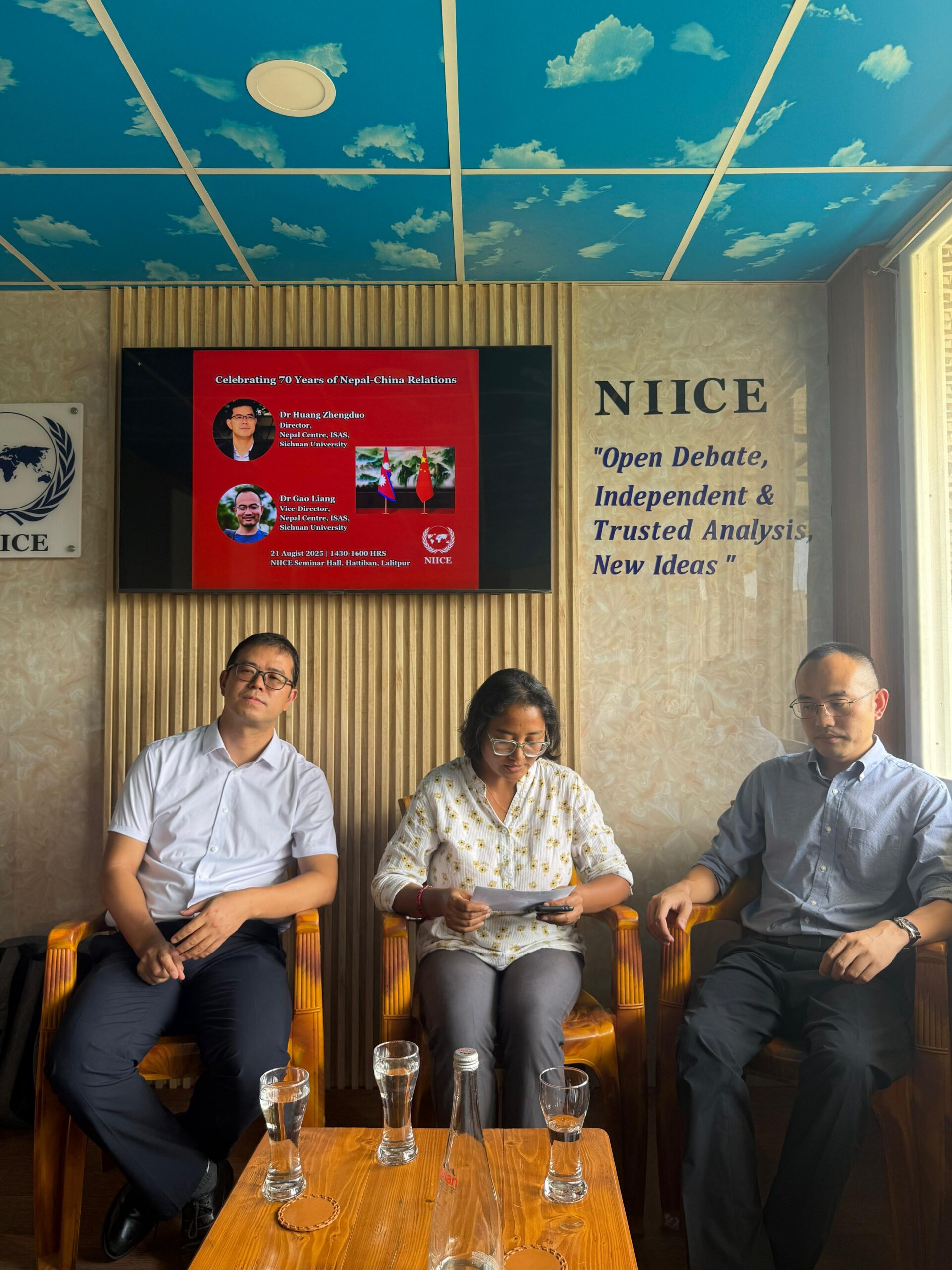NIICE Hosts Seminar on 70 Years of Nepal–China Relations

Kathmandu — The Nepal Institute for International Cooperation and Engagement (NIICE) organized a seminar on “70 Years of Nepal–China Relations” at its seminar hall on Thursday, bringing together leading academics, researchers, and policymakers to reflect on the achievements and challenges of bilateral ties.
The session featured keynote speakers Dr. Huang Zhengdou, Director of the Nepal Study Centre at Sichuan University’s Institute of South Asian Studies (ISAS), and Dr. Gao Liang, Vice Director of the same institute. The discussion was chaired by Dr. Lila Nyaichyai, Head of the Central Department of Library and Information Science and an expert in international relations.

In his address, Professor Huang highlighted the rapid rise in Nepal–China trade volume in recent years under the Belt and Road Initiative (BRI), but cautioned that the persisting trade imbalance remains a critical challenge. He underscored the importance of stronger cooperation with Nepalese enterprises to ensure high-quality, sustainable development under the BRI framework. Citing the China–Nepal Friendship Industrial Park project, envisioned to generate 100,000 jobs, he noted that the initiative has stalled for nearly a decade due to local opposition over compensation and weak progress on implementation.
 Dr. Gao emphasized on the strategic dimensions of Nepal–China cooperation, emphasizing the interlinkages of security, environment, and regional competition. He stressed Nepal’s strategic importance for China not only in security but also in regional connectivity and economic cooperation. Pointing to hydropower electricity trade as a promising area, he said such projects could boost Nepal’s income while deepening bilateral energy ties.
Dr. Gao emphasized on the strategic dimensions of Nepal–China cooperation, emphasizing the interlinkages of security, environment, and regional competition. He stressed Nepal’s strategic importance for China not only in security but also in regional connectivity and economic cooperation. Pointing to hydropower electricity trade as a promising area, he said such projects could boost Nepal’s income while deepening bilateral energy ties.
 Furthermore, he also highlighted the importance of diversified external connectivity for both countries and reiterated with the affirmation of the enduring bond: “Long live China–Nepal friendship.
Furthermore, he also highlighted the importance of diversified external connectivity for both countries and reiterated with the affirmation of the enduring bond: “Long live China–Nepal friendship.
